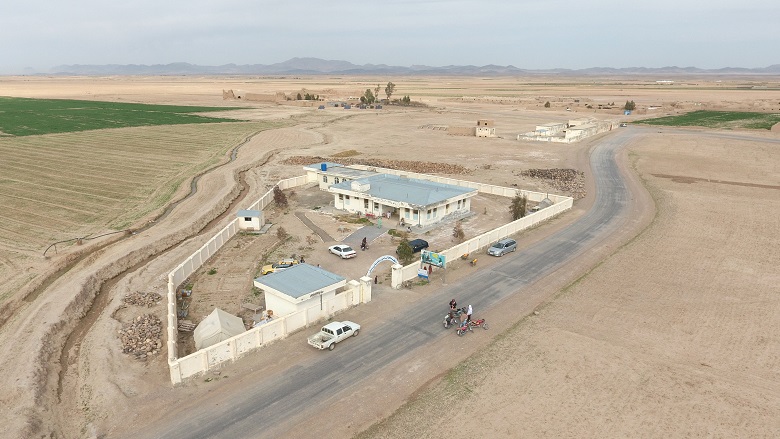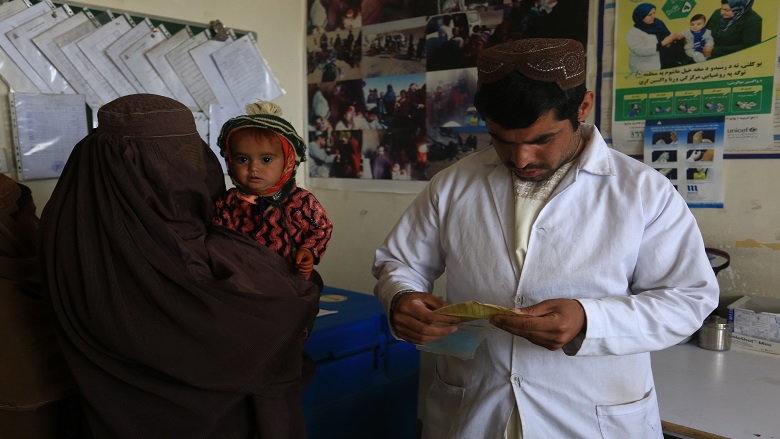DAMAN DISTRICT, Kandahar Province – In Afghanistan, especially in rural areas, access to health care is not simply about the facility being in place but more about communities deciding to trust modern medicine. This is especially true when it comes to women’s health and childcare.
A landlocked district, Daman is one of the more conservative districts in Afghanistan. The lack of facilities in the district is exacerbated by widespread misgivings about seeking access to health care services. .
This was the situation until recently in Azam Qala village in Daman district, which is served by the Azam Qala Basic Health Center (BHC). The BHC was established as a small health center 30 years ago, but even up to five years ago, it did not report any cases of childbirth because of traditional restrictions coupled with the lack of female health professionals. “Till a few years ago, we had no cases of pregnant women or childbirth at the health center,” says Azizullah Azami, 24, supervisor of the Community Health Workers at the BHC.
The situation, however, has changed since July 2015 when Bu Ali Rehabilitation and Aid Network (BARAN), a nongovernmental organization (NGO), was contracted by the Ministry of Public Health (MoPH) to implement Basic Package of Health Service (BPHS) financed by System Enhancement for Health Action in Transition (SEHAT) Program in Kandahar.


